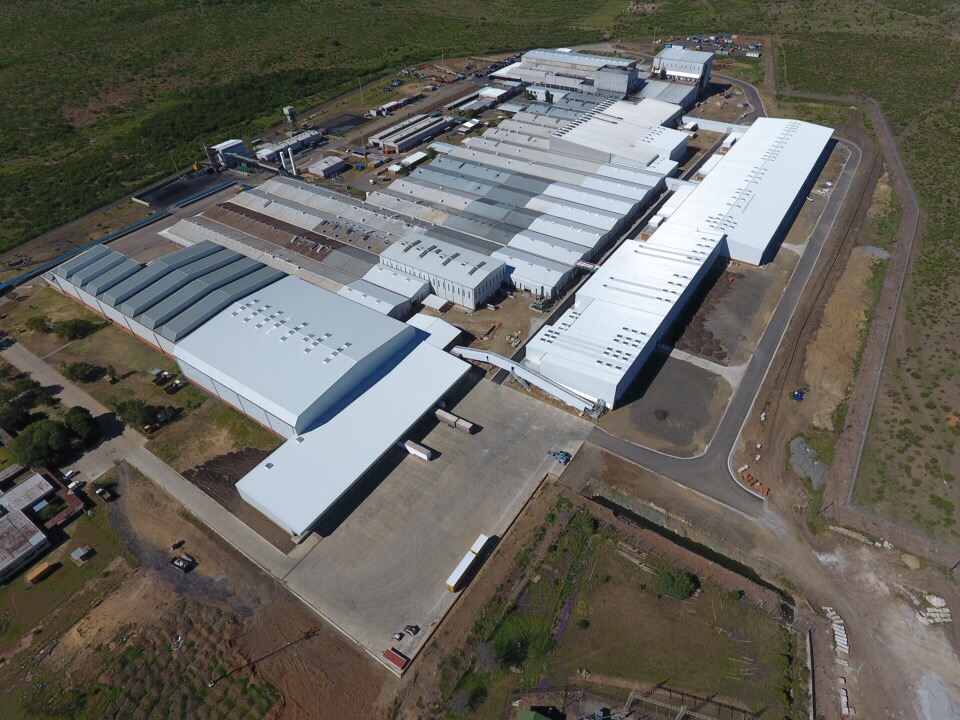October 2022: By Lubin Ozoux Chief Executive Officer at Sumitomo Rubber SA (Pty) Ltd | International manufacturer of premium tyres.
Although we are living in challenging times, facing an energy crisis and experiencing ever-growing levels of unemployment, I believe there are opportunities for the South African manufacturing sector to turn the situation around, helping to ensure the country’s future prosperity.
Manufacturing was the key sector contributing to strong GDP growth in Q1 2022, when GDP finally returned to pre-pandemic levels and was up 1.9% quarter on quarter.
Stats SA figures show manufacturing increased by 4.9% in Q1. Rubber products were among the largest contributors to this increased production, along with petroleum, chemicals, plastic products, the food and beverage industry, basic iron and steel, metal products, machinery, motor vehicles, parts and accessories, and other transport equipment.
However, 2022 has of course presented a number of challenges for local manufacturers like us, still reeling from the impact of the last two years of the global pandemic. We have had to contend with adverse weather events, infrastructure damage, fuel price spikes, interest rate increases and the worst load shedding in years. These only compound ongoing challenges like cheaply made imported products bagging growing market share, labour issues, input costs, and government and policy uncertainty.
So, how does one remain optimistic as a local manufacturer and South African business?
At a time when the whole world is facing unprecedented disruption, I believe that we in the developing world are able to seize the advantage.
Manufacturing has a critical role to play in South Africa, but there are many sectors under pressure already from international competition, particularly in the face of cheaply made imports infiltrating our market.
Smart Manufacturing is one of the ways for South African manufacturers to remain competitive locally and on a global scale and enable them to stake their claim to this enormous market. At Sumitomo Rubber South Africa, we are leveraging Smart Manufacturing technologies that will enable us to take our operations to new heights, creating innovative sales channels and entrepreneurial development opportunities.
We are constantly looking at how we can not only improve our products and grow our market share across our Dunlop, Falken and Sumitomo brands, here and into the African continent, but also contribute to the sustainability of local industry and manufacturing in South Africa.
Proof of our commitment to the region are our ongoing investments into our state-of-the-art Ladysmith tyre manufacturing plant, including a purpose-built 180 000m² truck bus and radial (TBR) factory and an upgraded modernised passenger car, sport utility vehicle (SUV) and light truck tyre manufacturing facility.
Over the next few months and years, we are certainly looking forward to ramping up local production, local investment and local employment.
Making use of the African Continental Free Trade Agreement (AfCTFA) could also open a lot of doors for South African manufacturers.
A report by the World Bank anticipates that AfCFTA could lift 30 million Africans out of extreme poverty, boost the incomes of nearly 70 million people, and generate $450 billion in income by 2035. South African manufacturers can tap into several trade agreements that provide an export platform into global markets.
Innovation is key.
Innovation is seen as the solution to overcoming the continent’s legacy challenges and ensuring its citizens can actively engage in the global economy.
At SRSA, innovation and quality are critical. We continue to focus on developing ground-breaking tyre innovations that meet and exceed global standards and on delivering real value in terms of safety and quality. Our priorities are on research, development and pro-active testing, where we are fortunate to have access to the resources of our global parent, Sumitomo Rubber industries (SRI) in Kobe Japan – a leading global manufacturer with a history of over 100 years of technical expertise and tyre manufacturing experience.
We feel optimistic for SRSA as car manufacturers move ahead with their plans to produce models that reduce carbon emissions. As a tyre manufacturer, we are part of these plans and grateful for the many opportunities to partner with OEMs, including Toyota, Nissan, Isuzu, Ford, TATA, UD Trucks, Scania, MAN, Iveco and VWSA. These partnerships affirm the OEMs’ trust in us as a tyre manufacturer and add credibility to our brand.
More than just tyre manufacturing
At SRSA, we believe our offering goes way beyond tyre manufacture. We believe that customers must feel like partners in building a better future for all stakeholders, which has led to us creating innovative sales channels and enterprise and entrepreneurial development opportunities.
SRSA is the only tyre manufacturing company with a township and rural area enterprise development programme and has now developed accredited training programmes funded by MERSETA and Sumitomo Rubber Industries (SRI). We have created jobs and transferred skills where they are most needed. With over 60% of young people in rural areas and in the townships being unemployed, our enterprise development initiatives have been well supported by government.
Our next step is to help our dealers grow and develop their businesses. Our dealer network ranges from entry level enterprises trading out of shipping containers, serving the man-in-the-street, to fully-fledged businesses that cater for every sector of the tyre market.
We must leverage our manufacturing potential.
I believe that Africa is a continent of great opportunity. It is young, fast growing, the fastest urbanising region in the world, with a population of 1,3bn forecasted to grow another by 1bn in 20-30 years.
And South Africa, with its well-developed, diversified manufacturing base, certainly has the potential to compete globally and to serve as a manufacturing hub for the continent. We can do this, if government and the private sector work more closely together to remove persistent barriers to manufacturing and business, accelerate economic reforms, address unfair international trade practices, reduce barriers to entrepreneurship and improve infrastructure.

